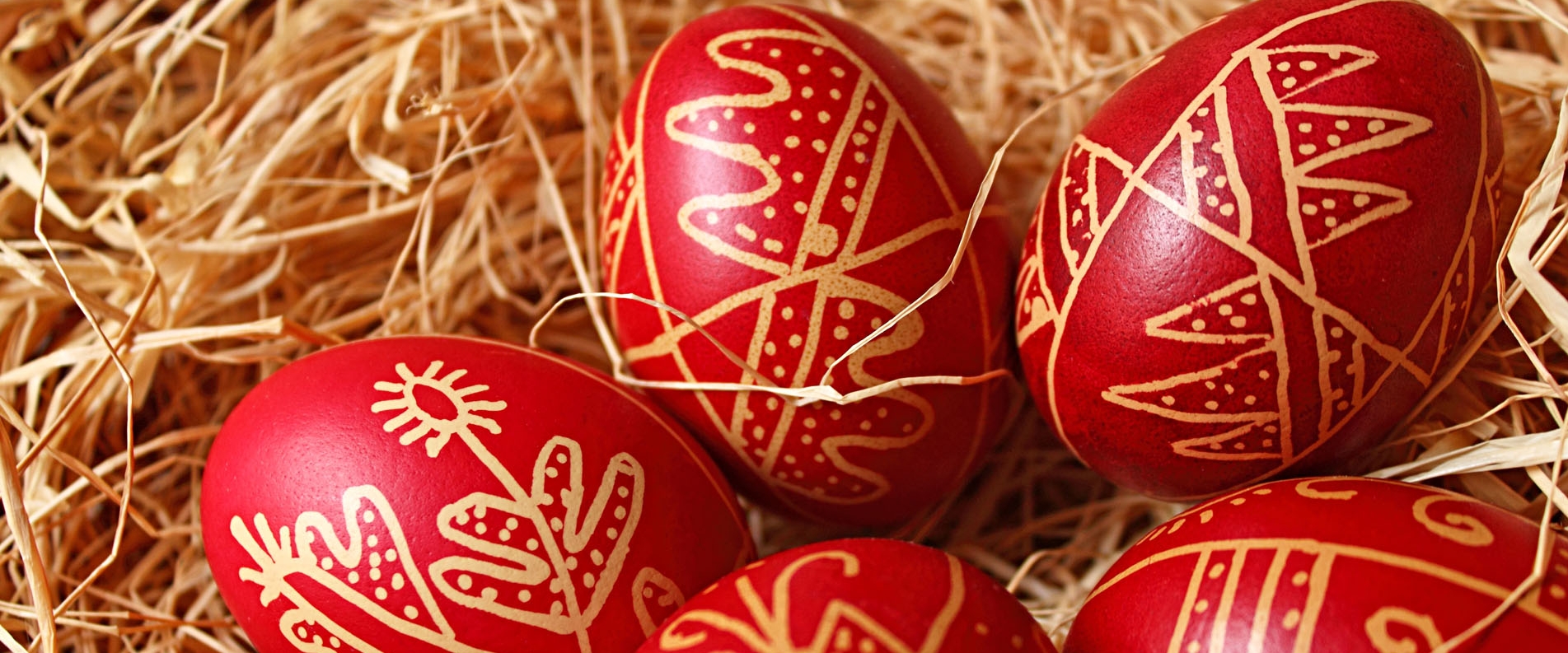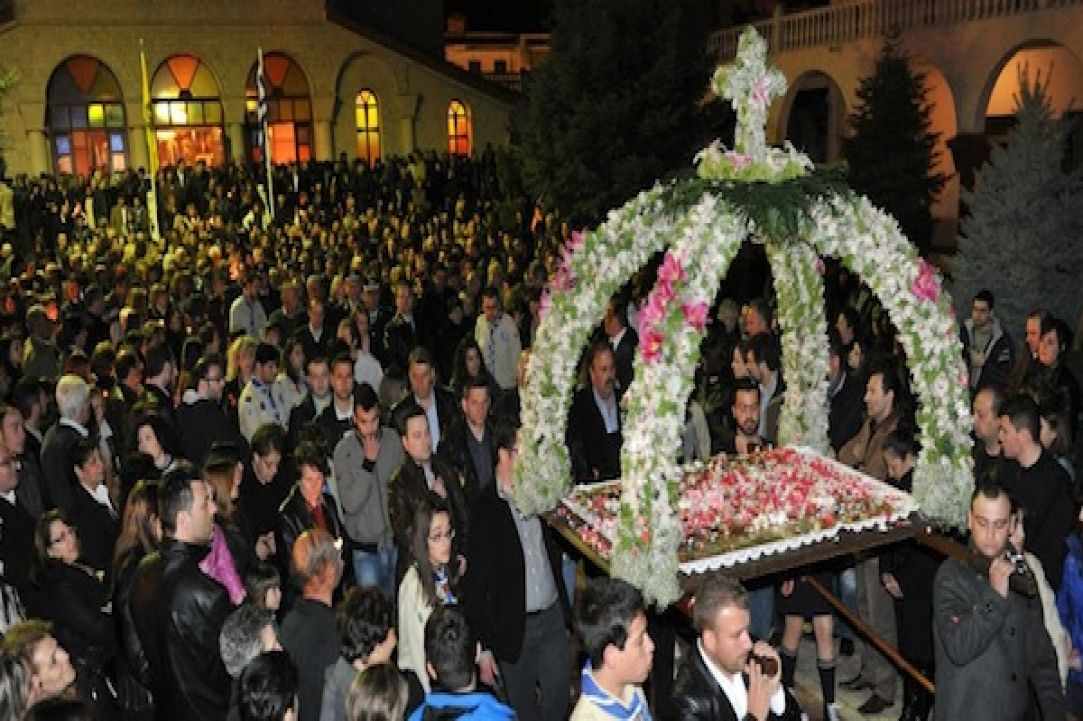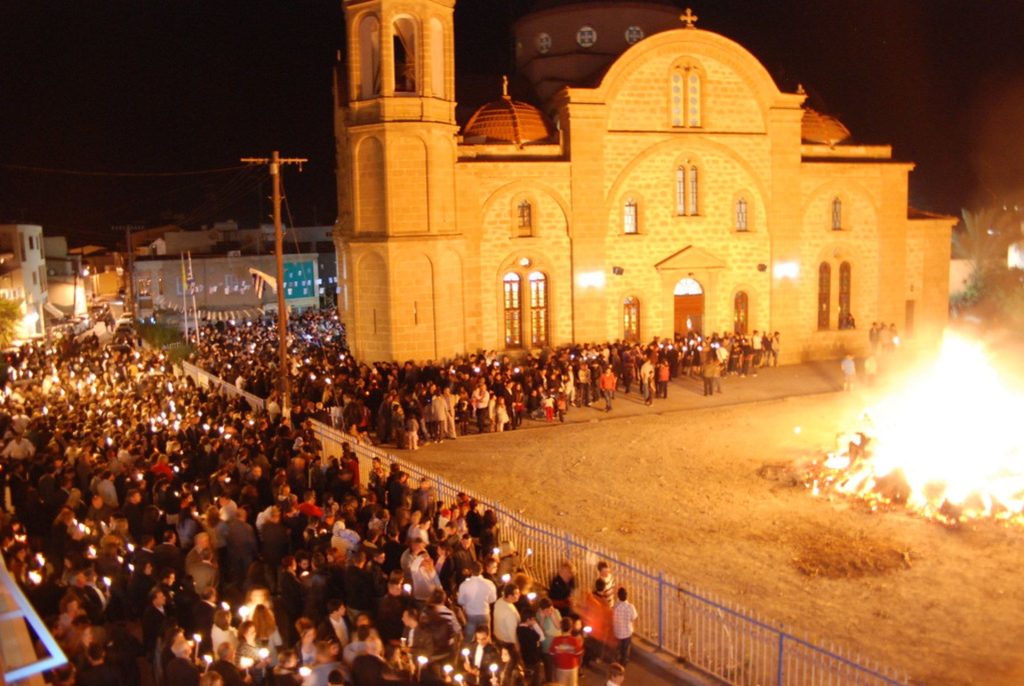Easter in Cyprus: A Celebration of Faith, Tradition, and Spring
Related Articles: Easter in Cyprus: A Celebration of Faith, Tradition, and Spring
Introduction
With great pleasure, we will explore the intriguing topic related to Easter in Cyprus: A Celebration of Faith, Tradition, and Spring. Let’s weave interesting information and offer fresh perspectives to the readers.
Table of Content
Easter in Cyprus: A Celebration of Faith, Tradition, and Spring

Easter in Cyprus is a vibrant spectacle, a joyous fusion of religious solemnity and cultural celebration. It is a time when the island comes alive with the spirit of renewal, the anticipation of spring, and the profound meaning of the resurrection. The festivities extend beyond the traditional religious observances, encompassing a rich tapestry of customs, traditions, and culinary delights.
The Significance of Easter in Cyprus
Easter, or Pascha as it is known in the Greek Orthodox tradition, holds immense significance for the Cypriot people. It is the culmination of the 40-day period of Lent, a time of reflection, fasting, and spiritual preparation. The central theme of Easter is the resurrection of Jesus Christ, symbolizing hope, redemption, and the triumph of life over death. This profound religious message resonates deeply within the Cypriot cultural fabric, shaping the celebrations and traditions that define the Easter period.
The Observance of Holy Week
The week leading up to Easter Sunday, known as Holy Week, is a time of intense religious devotion. Each day holds special significance, marked by specific rituals and services:
- Palm Sunday: Commemorates Jesus’ triumphant entry into Jerusalem. Churches are adorned with palm branches, symbolizing victory and peace.
- Holy Monday: Focuses on the betrayal of Judas Iscariot, highlighting the theme of betrayal and the consequences of human actions.
- Holy Tuesday: Recalls the parable of the ten virgins, emphasizing the importance of preparedness and vigilance.
- Holy Wednesday: Honors the anointing of Jesus by Mary Magdalene, signifying the importance of love and devotion.
- Holy Thursday: Celebrates the Last Supper, where Jesus instituted the Holy Eucharist and washed the feet of his disciples, symbolizing humility and service.
- Good Friday: Marks the crucifixion and death of Jesus Christ. Churches hold solemn processions, symbolizing the grief and sacrifice.
- Holy Saturday: A day of somber reflection and anticipation, culminating in the Paschal Vigil, a service that celebrates the resurrection.
The Joyful Celebration of Easter Sunday
Easter Sunday is a day of immense joy and celebration, marking the resurrection of Jesus Christ. The day begins with the Paschal Vigil, a service filled with light, music, and the reading of the Gospel accounts of the resurrection. Churches are adorned with flowers and candles, symbolizing the triumph of light over darkness.
Following the service, families gather for traditional feasts, often featuring roasted lamb, red eggs, and Easter bread. The red eggs symbolize the blood of Christ, while the Easter bread, known as "tsoureki," is a sweet bread often decorated with red eggs.
Cultural Traditions and Customs
Easter in Cyprus is not just a religious observance but also a vibrant cultural celebration. Several unique customs and traditions add to the festive atmosphere:
- The "Lambro" (Easter Lamp): A large, decorated candle that is lit during the Paschal Vigil, symbolizing the light of Christ’s resurrection.
- The "Red Eggs": Hard-boiled eggs dyed red, representing the blood of Christ. Children often engage in games involving the eggs, such as "tsokounia," where they try to break each other’s eggs.
- The "Koulouma": A traditional custom where people gather in public squares and parks to sing, dance, and enjoy traditional delicacies.
- The "Festivities in Villages: Many villages across Cyprus host special events and festivals during Easter, including parades, folk dances, and traditional music performances.
Easter Cuisine
Easter in Cyprus is synonymous with a rich culinary tradition. The festive table is laden with special dishes, many of which are prepared only during this time of year:
- Roasted Lamb: A staple of the Easter feast, often roasted whole and served with potatoes and vegetables.
- "Flaounes": Cheesy pies made with phyllo dough and traditionally filled with cheese, herbs, and eggs.
- "Tsoureki": Sweet Easter bread often decorated with red eggs.
- "Koulouria": Small, ring-shaped cookies, often flavored with anise or sesame seeds.
- "Avgolemono": A creamy chicken soup made with lemon juice and egg yolks.
- "Trahana": A traditional pasta made from dried dough, often served in soups or stews.
Benefits of Visiting Cyprus During Easter
Visiting Cyprus during Easter offers a unique opportunity to experience the island’s vibrant culture and traditions. The festivities provide a glimpse into the deep faith of the Cypriot people and the strong bonds of family and community.
Furthermore, the spring season brings with it pleasant weather, making it an ideal time for exploring the island’s scenic landscapes, ancient ruins, and picturesque villages.
FAQs about Easter in Cyprus
Q: When is Easter in Cyprus?
A: Easter in Cyprus follows the Julian calendar, which is used by the Greek Orthodox Church. The date of Easter varies each year, but it typically falls between late March and late April.
Q: What are the main events during Easter in Cyprus?
A: The main events include the Holy Week services, the Paschal Vigil, Easter Sunday celebrations, traditional feasts, and cultural events such as the "Koulouma" and village festivals.
Q: What are some of the traditional foods served during Easter in Cyprus?
A: Traditional Easter dishes include roasted lamb, "flaounes" (cheesy pies), "tsoureki" (Easter bread), "koulouria" (cookies), "avgolemono" (soup), and "trahana" (pasta).
Q: What are some tips for visiting Cyprus during Easter?
A:
- Book accommodations in advance: Easter is a popular time to visit Cyprus, so it’s advisable to book hotels and flights well in advance.
- Respect local customs: Be mindful of the religious significance of Easter and dress appropriately when visiting churches.
- Embrace the festive atmosphere: Participate in the celebrations, enjoy the traditional foods, and engage with the local culture.
- Explore the island: Take advantage of the pleasant spring weather to explore the island’s scenic landscapes, historical sites, and charming villages.
Conclusion
Easter in Cyprus is a time of profound religious significance, vibrant cultural celebration, and delicious culinary delights. It is a period when the island comes alive with the spirit of renewal, the anticipation of spring, and the joy of the resurrection. Whether you are seeking a spiritual retreat, a cultural immersion, or simply a chance to enjoy the beauty of Cyprus, Easter offers a unique and unforgettable experience.








Closure
Thus, we hope this article has provided valuable insights into Easter in Cyprus: A Celebration of Faith, Tradition, and Spring. We appreciate your attention to our article. See you in our next article!
